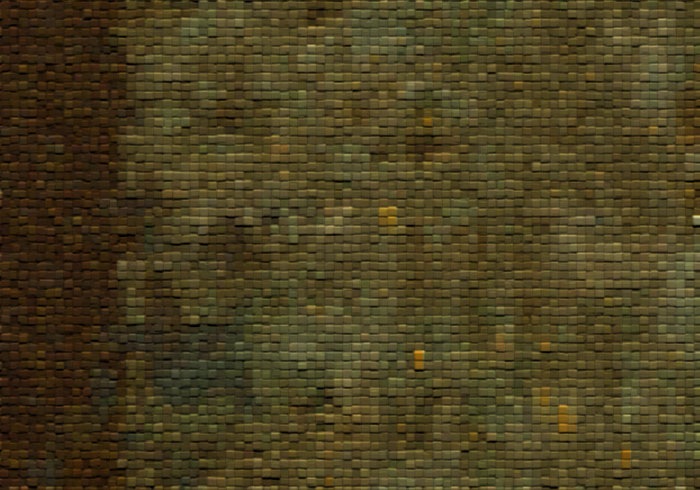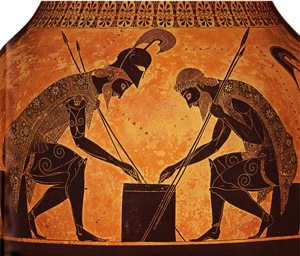




The Archaic Period saw the appearance of a more sophisticated form of community organization in some parts of the Aegean. That community was the polis or city-state, which is the central institution of Greek history. As I have suggested and as we shall see abundantly, again in later classes the polis was not merely a political organization. It was also social, economic, and even religious. An individual outside the polis had no political rights, no legal standing, no social position, no means of making a living, no possibility for following his religion. The polis was comprehensive in its concerns, just as the oikos or family had been in the Dark Ages. The best way to imagine a polis is to think of it as one of these families which was expanded to include many more persons. The Greek attitudes toward the polis are best understood in this way. But if the polis is thought of as a large family, then there was a basic contradiction in its earliest form of organization. In a family, everyone is equal; they all have similar obligations and rights. They were not equal in the Archaic polis.

Eventually, the community would usurp all the functions originally belonging to the oikos. It would become a sort of super-family operating on a larger scale and having far more members. The community in its developed form operated like a family. Membership in it (i.e. citizenship) was hereditary, and it was united by the sense of kinship surviving form the demos of the Dark Ages. The underlying assumption of equality was based on kinship. But the replacement of the family by the community was a slow process that was not completed until the Archaic Period was over. In the early days, family loyalties, clan loyalties, and for the first time in the Archaic Period—class loyalties competed with loyalty to the community as a whole.
The Greeks called the local political unit, which I have referred to as “community,” polis. We translate this term “city-state.” I like community, but city-state does give an idea of the physical nature of the polis. Each small state had a headquarters which we would call a city. It developed from a common site shared by the demos in the Dark Ages. The site was usually dominated by a high hill at its center. It was called an acropolis, or high town. In the Dark Ages, it was a refuge in war and was usually fortified; it often continued to be a fort. As the community became more unified, it was the most secure place to put temples, so it also became the religious center of the polis. Each city would also have one or more flat, open spaces which served as meeting place for the agora of the Dark Ages. In the Archaic Period, the place itself came to be called agora. Persons could meet for many different purposes in the agora, and it developed in particular into a market place. Other features of a city grew up more slowly. Most citizens did not live in the city, so non-public buildings were rare. Walls surrounding a whole city are seldom found in the Aegean before 500 B.C.
The city-state was not just the city. It had a surrounding territory made up of land owned by members of the polis. Rising population would stimulate competition for limited Greek resources, and a better-organized or larger polis would be able to take over outlying farms or neighboring smaller towns. But this was unusual, and where it did occur, geography strictly limited expansion. Even the larger city-states were very small.
As the polis developed, political power in the community tended to shift. In the Dark Ages, political power—such as it was—lay with the executive, that is with the war chief or basileus. But, since, there was no tradition of strong, centralized leadership on which he could build, the basileus was merely one member of the demos, albeit an important one. Other leaders could rival him in prestige if not power. He was usually a larger landowner, but others might own as much as he did. Even in war, he had rivals in the polis. Men who were the equals of the basileus in wealth, military skill, and prestige were not about to be his political inferiors. They saw to it that they would share any new executive powers to be created. Thus, any new powers went not to the basileus, but to other officials created to exercise them. They had various titles in different cities, but we can call them generically magistrates. Magistrates were elected to serve one-year terms, which insured that the offices and powers would pass around to many men. The short tenure insured that the individual executive would be weak.



Above: Early Archaic kore statue.
Below: Priestess on red figure kylex, c. 500 B.C.
Below right: Achilles and Ajax later Archaic pottery.







